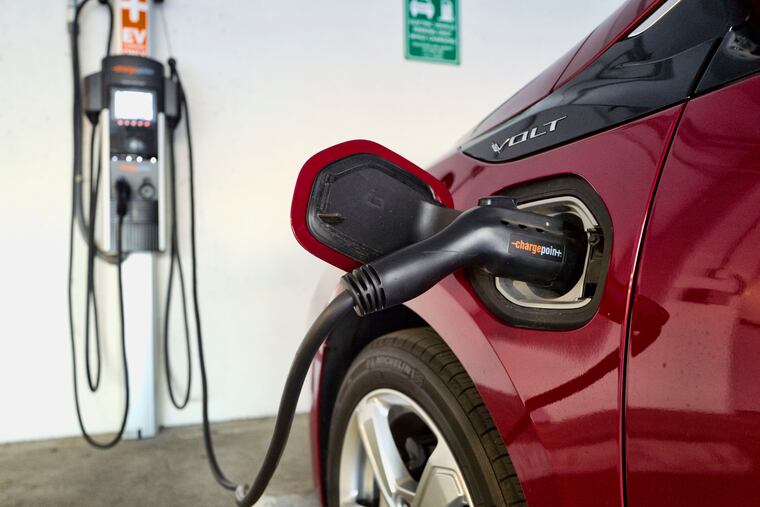New Jersey’s new electric vehicle rebate draws 1,800 applications, despite COVID economy woes
Since New Jersey opened its new rebate program for electric vehicle purchases two months ago, it's received 1,800 applications even amid an economy dragged down by the COVID-19 pandemic.

New Jersey has received 1,800 applications for its new electric vehicle rebate program even amid a slow rollout and car sales that crashed for months because of COVID-19, according to the state Board of Public Utilities.
More than 1,000 applications have been approved for a total of about $5.8 million. The BPU runs the program and is reviewing the remaining applications. It expects that most will receive approval. The program has been underway in earnest for about two months.
Jim Appleton, president of NJ Car, a coalition of auto dealers, called the number a positive step, considering that the state’s dealerships saw an 85% sales plunge in March, when shutdown orders were in effect and manufacturing was rocked. Now, he said, dealerships are recovering.
“Nobody’s blown away by 1,800 vehicle sales,” Appleton said. “New Jersey is a half a million-vehicle-per-year market. So 1,800 ... is not breaking any land-speed records, but in the midst of a pandemic, it’s a silver lining.”
Gov. Phil Murphy signed legislation in January that environmental groups believed could propel the state into national leadership on electric vehicle sales with a $5,000 rebate, combined with an existing sales-tax exemption.
» READ MORE: With $5,000 rebate and tax exemption, New Jersey poised to become electric vehicle leader
Though dealers could initiate the rebate on behalf of a buyer, they were forced to close showrooms in March, and it wasn’t even until late May that the BPU had an online application to allow buyers to apply directly.
The agency is now working toward having $5,000 come off the sticker price of an electric car at the point of sale without additional paperwork.
The rebates apply only to electric vehicles with a retail price below $55,000 because state officials did not want to subsidize luxury sales. Owners must be registered in New Jersey and will get $25 for each mile the car uses to run on electric power, up to $5,000. So, a car with a 200-mile battery range would qualify for the full amount.
Hybrid cars can also qualify for rebates, but their range of electric power is usually limited because they also use gas as a power source.
“So far, the program is achieving its goal of encouraging EV adoption by changing car buyer behavior,” said Peter Peretzman, a BPU spokesperson. “The majority of the applications qualify for a $5,000 rebate because the vehicles purchased are the most efficient on the market.”
The program set aside $30 million annually for 10 years for the rebates, to be paid by the state’s existing Clean Energy Fund. The goal is to get 330,000 electric vehicles on the road by 2025.
However, about $16 million of that has been shifted to fund other Clean Energy programs because of the state budget crunch caused by the pandemic. The long-standing Clean Energy program is funded through a per kilowatt hour charge on customers’ energy bills.
Appleton, who drives an electric vehicle, said the rebate is a good deal. For example, he said, a Hyundai Kona retails for about $33,000. But, adding in the $5,000 incentive, $7,500 federal tax credit, and zero New Jersey tax, the price would drop into the $20,000 range.
Doug O’Malley, director of Environment New Jersey, said there is still a “huge demand” and interest in electric vehicles and the rebate program despite the economy, and he cautioned against dipping into the money for future budget woes.
“We should be careful about snuffing out those interests by raiding those funds,” O’Malley said. “There is tremendous interest in the EV rebate program. It was spurring sales of EVs that hadn’t existed before. The pandemic has shown what a world without so many gas-powered cars looked like. We need to continue that by making the EV rebate program a success.”
The other component of the electric vehicle program calls for getting infrastructure in place for 400 fast chargers throughout the state by 2025, installing chargers at 15% of all multifamily residential properties, and having 10% of NJTransit’s new buses be zero-emission vehicles by 2024.